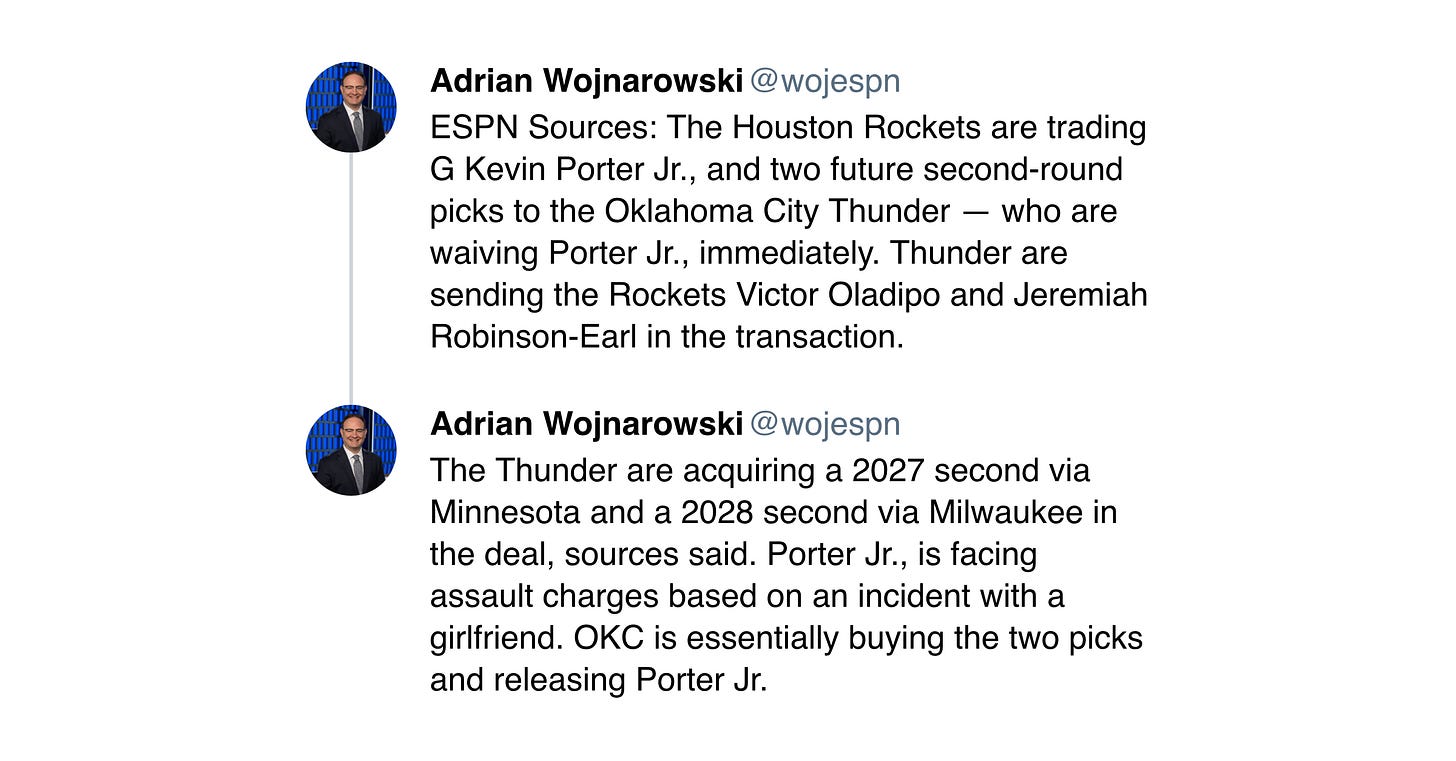The deal:
The grade:
B
The reasoning:
The Houston Rockets were in a tough predicament with Kevin Porter, but they didn’t have to trade him. The nature of Porter’s deal allows Houston the right to waive him outright without any financial burden beyond this season. However, they’ve been intent on getting a deal done since news of his arrest first broke. Motivations are an important part of the analysis here.
Shams Charania reported in September that the Rockets were targeting “a player under contract who can play immediately and help the team”. While Victor Oladipo is certainly under contract ($9.5 million owed this season), it’s worth questioning how helpful he will be to Houston’s causes this season. Plagued by lower body injuries, Oladipo has only played in 104 regular season games in the past 4 years. In fact, just six months ago Oladipo underwent patellar tendon surgery.
He is more akin to a rehabilitation project on an expiring contract than a rock-solid NBA rotation player.
On the bright side, Jeremiah Robinson-Earl is a decent scratch-off ticket for Houston to acquire after shipping off three such talents (TyTy Washington, Usman Garuba, and Josh Christopher) in the Dillon Brooks sign-and-trade this summer. Robinson-Earl is an always-hustling, fast-processing 6-foot-9 forward that many believe can be a decent reserve one day due to his ability to stretch the floor (shot 34.4% from three in Oklahoma City). He’s also got a dirt cheap team option for next year ($1.9 million).
Robinson-Earl is probably worth one second round pick by himself. Houston is essentially trading the other second round pick for optionality with Oladipo’s expiring salary. Can they flip him at the deadline for a helpful player on a long-term salary? I mean, maybe. More likely the Rockets want to keep his contract on the books for the ability to aggregate salaries should a star player become available at the deadline.
And if that player doesn’t become available, they can just allow Oladipo’s contract to expire and sign players through free agency to make up the slot. Essentially, the Rockets bought themselves some financial flexibility with a second round pick. Will it ultimately pay off at the deadline or will it be for nothing? We’ll just have to see.
For now, this was a trade Houston felt they had to do and it was… fine. It didn’t have to happen at all, but if it was to happen any other way, it could’ve cost more than this.




